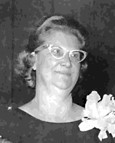Deceased Real Estate Agent's Identity Stolen
Fraudsters and spammers are becoming more and more commonplace in today's world. It seems everyone is on social media, emails, texting, and buried deep inside their "smart device". This has proven to be a gold mine for many fraudsters, and it appears they have no conscience in some cases.
In June 2017, the very sad story broke of 76-year-old Mary Anne Rolnick, who was believed to be murdered. She was a Jacksonville, Florida based Realtor. To make it worse, her son is being charged with the murder. You'd think that was bad enough. However, a month after her death, she was sending out emails to agents saying that she had an interested buyer client. Obviously, she didn't send the emails. It was another fraudster at work, although it's not clear what they were after.
Of the multiple people to receive the fake email, one was Nancilee Holland, a Realtor based in Westchester County, New York. It was reported that Nancilee first thought the email was legitimate, but after she read it, the email just didn't seem right. Something was off, and it bothered her. After a more careful inspection of the email she started to notice the bad grammar and typos, which are not typical of a professional. So, she did what we all do when we're curious about someone; she "Googled" them. That is how she found out about the death and figured out a scammer was attempting to get something from her. Nancilee is not the only person to report receiving the emails. People as far away from Florida as Phoenix, Arizona have also reported receiving it.
RELAW, APC has written many articles on how to protect yourself from scams and fraudsters in the electronic world. Please be very diligent and cautious, especially with wiring funds.
|
|
Case of the Month
California Supreme Court Upholds Broad Application of Documentary Transfer Tax
Not many consumers know or understand California Documentary Transfer Tax. This is a charge that is levied by the government on every property transfer. It does not matter if the transfer is for residential or commercial property, nor is there a dollar amount threshold before the levy is charged. It is typically listed somewhere in all the closing costs, so many people overlook it. It is, however, quite a good source of general funds for the state, county, and city municipalities, since there are typically no restrictions placed on how they can use the funds.
There are a few exemptions to this tax, but they are limited. Consumers do challenge the tax from time. One such challenge came from the case 926 North Ardmore Avenue v. County of Los Angeles. The question in this case is whether or not there is a transfer for purposes of the documentary transfer tax when there is a written transfer of a beneficial ownership that qualifies for reassessment under California property tax law. What does that mean? Basically, does an indirect change of ownership occurring during transferring ownership in a legal entity qualify for the Documentary Transfer Tax. An example would be the sale of membership interests in a Limited Liability Company.
Prior to this case, the traditional view was that such a transfer was not covered as it did not require the recording of a deed. Transfer tax is typically charged at the time of recording so most saw the two as linked.
The California Supreme Court ruled on June 29, 2017, 6-1 that the change of ownership under Proposition 13 does qualify for the documentary transfer tax, even when there is no direct transfer of a real property interest. This ruling removes some uncertainty in what qualifies and what does not. Many city and county governments were not charging the tax on the transfer of legal entities because it was still not clear if that qualified or not. It should be expected that since it has been clarified by the California Supreme Court that many city and county municipalities will start to impose this tax.
It should be noted that the one dissenting vote pointed out there are different statutory requirements for imposing transfer taxes. The majority, however, concluded the interpretation does satisfy the purpose behind the tax.
|

Court Equitably Subordinates a Recorded Life Estate?
In 2004, David and Louisa Wuebbens decided to convey their home to their daughter, Marla Wuebbens Quinn. They did so while retaining life estates in the property. In common law and statutory law, a life estate is the ownership of land for the duration of a person's life. In legal terms, it is an estate in real property that ends at death of the person granting the property.
In 2005, a mortgage for $260,000 with IndyMac Bank was executed to convey the property. In 2007, the daughter, Quinn, refinanced the mortgage for $380,000, also with IndyMac Bank. Part of the proceeds of the 2007 mortgage were used to pay off a portion of the 2005 mortgage. IndyMac Bank failed to get notice of the parents' recorded life estate interests during the title process in 2007. A result of their failure is the parents did not execute the 2007 mortgage.
In 2009, IndyMac Bank filed an action to foreclose on the 2007 mortgage because the daughter, Quinn, defaulted. That's when it got a little messy. Which has priority, the 2007 mortgage lien, or the parents' earlier recorded life estate interests in the property?
The Trial Court, and later the Appellate Court, ruled the 2007 mortgage lien had priority. However, that priority was "capped" at $260,000.00, which is the value from the 2005 mortgage. The parents' life estates were given priority for the portion of the 2007 mortgage loan that exceeded the $260k amount. They did this for three main reasons.
1. The parents signed the 2005 mortgage;
2. Some of funds from the 2007 mortgage were used to satisfy the 2005 mortgage; and
3.
Since the 2007 loan had better terms than the 2005 loan.
This solution was clearly an equitable, split the baby solution, versus a by the book legal one. Under the circumstances it was likely the fairest way to resolve the dispute.
|
|
 The California Escrow Association Miriam Schwarz Benevolent Fund
The California Escrow Association Miriam Schwarz Benevolent Fund
Miriam Schwarz was the victim of an auto accident that left her pinned under the steering wheel of her car. She was trapped all night off the side of the road. During her many months of hospitalization and therapy, Miriam vowed to do something to show her appreciation to all of her friends and fellow California Escrow Association (CEA) members that visited and supported her during her recovery. In 1976, she presented CEA with a $1,000.00 contribution to establish a benevolent fund for members of CEA. CEA later voted to name the fund after Miriam. If you'd like to donate to the fund, please send a check made payable to CEA Miriam Schwarz Benevolent Fund to CEA Headquarters, 2520 Venture Oaks Way, Suite 150, Sacramento, CA 95833. There are other ways to donate too, like a monthly donation from your paycheck. To find out more or to donate you can discuss options with Jennifer Felten of RELAW, APC or Eric Spitz of MyNHD.
Another way to donate, is to purchase an Escrow Charm. Escrow Charms, Escrow Stones, and Escrow Bracelets are $10.00 each. A portion of each sale goes directly to the Fund. You can have a charm created for your company as well. We recommend collecting all the charms, starting with the RELAW, APC charm! To order your very own charm, visit www.escrowcharms.com. Eric has generously spearheaded this project which has raised thousands of dollars for the fund.
|
RELAW, APC hires Two New Staff Members
Please join us in welcoming two new staff members to RELAW, APC. Alexandra Samofalova is our new Associate Attorney. Mary Jo Spaulding is our new paralegal. We're very excited to have them join the team. Please check our website for their upcoming bios.
|
|
Upcoming Speaking Engagements
Jennifer will be teaching a class for the Escrow Training Institute on Saturday, September 9, 2017, at 8:30, at the Holiday Inn in Carlsbad on Escrows in Probate, Bankruptcy, Divorce and More. For more information on the class or to register please visit:
|
|
|
STAY CONNECTED

|
|
|
|
|